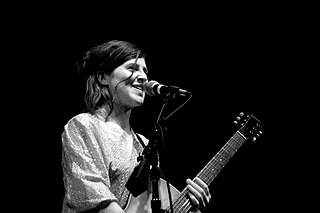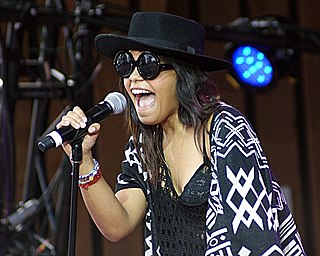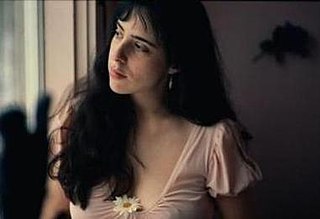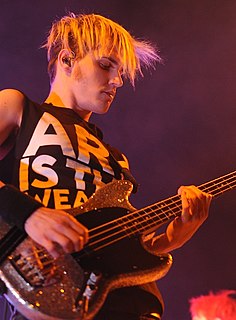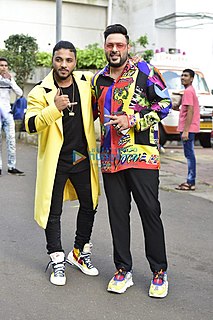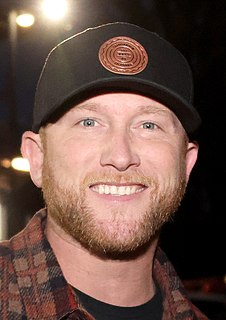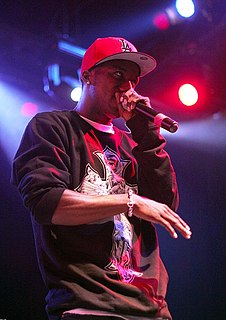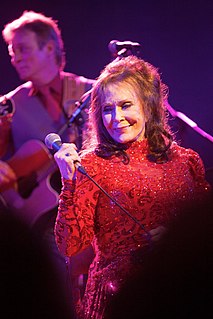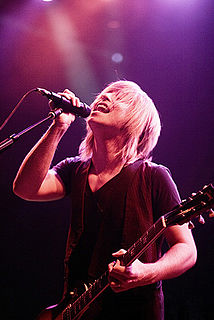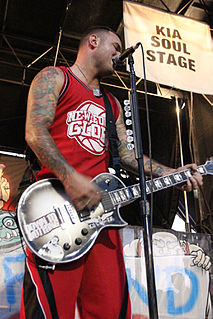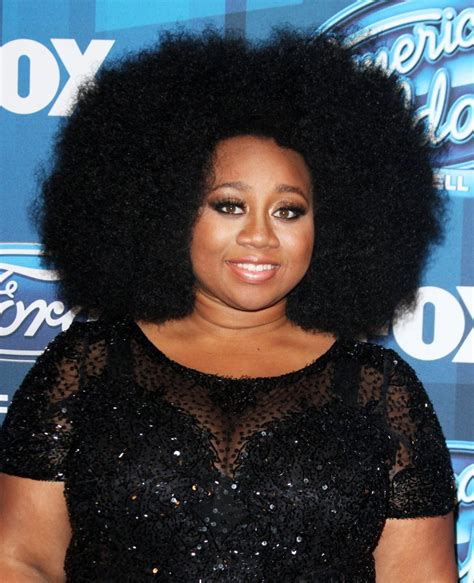A Quote by Sufjan Stevens
I'm no longer beholden to the sacredness of the recorded song as some kind of ultimate standard by which every performance of the song is measured. I like to diversify, that there are multiple versions of every song. And the songs incorporate a lot of improvisation, and an element of chance, and I think that's exciting. There's no one true formulation of a song, they have various manifestations depending on the space we're in. I like that.
Related Quotes
An audience will let you know if a song communicates. If you see them kind of falling asleep during the song, or if they clap at the end of a song, then they're telling you something about the song. But you can have a good song that doesn't communicate. Perhaps that isn't a song that you can sing to people; perhaps that's a song that you sing to yourself. And some songs are maybe for a small audience, and some songs are for a wide audience. But the audience will let you know pretty quickly.
But once you've made a song and you put it out there, you don't own it anymore. The public own it. It's their song. It might be their song that they wake up to, or their song they have a shower to, or their song that they drive home to or their song they cry to, scream to, have babies to, have weddings to - like, it isn't your song anymore.
There are no limitations with a song. To me a song is a little piece of art. It can be whatever you like it to be. You can write the simplest song, and that's lovely, or you can just write a song that is abstract art. ... A lot of my songs are very serious, I'm like dead serious about certain things and I feel that I'm writing about the world, through my own eyes. ... I have a love for simple basic song structure, although sometimes you'd never know it. ... Most of the songs I wrote at night. I would just wake in the middle of the night. That's when I found the space to write.
The interesting thing about a song like 'Bulletproof Heart' - it was [originally] called 'Trans Am' - the interesting thing about the amalgamation of that song was that the song also lived within us, like we all got to live with the song and it was around for about a year before we recorded it again, so the song got to really transform, which you don't really get to do.
I feel like this song [Yello, "Oh Yeah"] was probably done in a couple of minutes in a studio. There was probably no thought behind it; they were just playing with some samples and threw it together. I feel like there's no dream behind the song. Usually there's a dream or some kind of passion attached to a song. This song feels very empty. It made a lot of money for the songwriters but at the expense of culture.
If I found out some gal was trying to steal my guy, I'd want to give her a black eye! Instead, I wrote this song. At the time I was writing each song [on this album], you could figure out the frame of mind I was in by listening closely. With every song I've ever recorded, I'm in it. I wouldn't write about it if I wasn't in it.
In fact I wonder if I should bend my own rules a little and for the sake of writing a good song it doesn't have to been so autobiographical, but that's a stupid rule to live by as some of my favourite artists' songs, they have a song that you think is about their life [which] probably even isn't, but it's a great song.


